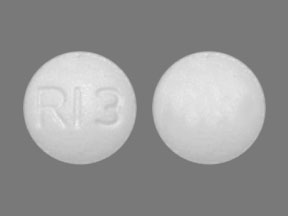
Risperidone Coupons & Savings Card – Discount Prices from $11.71
Generic for: Risperdal
My prescription
Edit
1MG, Risperidone (60 Tablets)
Select pharmacy

CVS
$19.56
COUPON PRICE
Walgreens
$11.71
COUPON PRICE
Albertsons
$17.66
COUPON PRICE
Walmart
$28.90
COUPON PRICERisperidone savings card
Show this card to your pharmacist
Walgreens
$11.71
BIN
ID
PCN
GRP
019876
LHBD30A768
CHIPPO
LHX
Powered by
More prescriptions for schizophrenia
More prescriptions for schizophrenia
Price history for Risperdal (brand) & Risperidone (generic)
60 Tablets, 1MG
Average retail price for Risperdal
Average retail price for Risperidone
Average SaveHealth price for Risperidone
Our price history data is based on aggregated prescription data collected from participating pharmacies in America. Our prescription data updates daily to reflect the latest price changes. If you notice a missing data point, it means there wasn't sufficient data available to generate a monetary value for that date.
We analyzed Risperidone prices for (1MG, 60 Tablets) over the last 12 months. The average retail price was $28.83, while the average price using the SaveHealth discount card was $26.04. That's a savings of approximately 9.68% when using our Risperidone coupon.
Compared to the generic version, Risperdal had an average price of $1021.49 over the same time period. With the SaveHealth savings card, Risperidone is 97.45% cheaper on average than Risperdal.
*Retail prices are based on pharmacy claims data, and may not be accurate when we don't have enough claims.
Risperidone dosage forms
Dosage Quantity Price from Per unit 0.25MG 1 Tablet $9.04 $9.04 0.25MG 30 Tablets $10.20 $0.34 0.25MG 60 Tablets $11.41 $0.19 0.25MG 100 Tablets $18.51 $0.18 0.25MG 500 Tablets $32.55 $0.07 0.5MG 1 Tablet $9.04 $9.04 0.5MG 30 Tablets $10.27 $0.34 0.5MG 60 Tablets $11.54 $0.19 0.5MG 90 Tablets $18.52 $0.21 0.5MG 100 Tablets $18.91 $0.19
| Dosage | Quantity | Price from | Per unit |
|---|---|---|---|
| 0.25MG | 1 Tablet | $9.04 | $9.04 |
| 0.25MG | 30 Tablets | $10.20 | $0.34 |
| 0.25MG | 60 Tablets | $11.41 | $0.19 |
| 0.25MG | 100 Tablets | $18.51 | $0.18 |
| 0.25MG | 500 Tablets | $32.55 | $0.07 |
| 0.5MG | 1 Tablet | $9.04 | $9.04 |
| 0.5MG | 30 Tablets | $10.27 | $0.34 |
| 0.5MG | 60 Tablets | $11.54 | $0.19 |
| 0.5MG | 90 Tablets | $18.52 | $0.21 |
| 0.5MG | 100 Tablets | $18.91 | $0.19 |
| 0.5MG | 120 Tablets | $19.69 | $0.16 |
| 0.5MG | 500 Tablets | $34.54 | $0.07 |
| 1MG | 60 Tablets | $11.71 | $0.20 |
| 1MG | 1 Tablet | $9.05 | $9.05 |
| 1MG | 7 Tablets | $9.32 | $1.33 |
| 1MG | 15 Tablets | $9.68 | $0.65 |
| 1MG | 30 Tablets | $10.35 | $0.34 |
| 1MG | 33 Tablets | $10.49 | $0.32 |
| 1MG | 45 Tablets | $11.03 | $0.24 |
| 1MG | 90 Tablets | $18.98 | $0.21 |
| 1MG | 100 Tablets | $19.43 | $0.19 |
| 1MG | 500 Tablets | $36.80 | $0.07 |
| 2MG | 1 Tablet | $9.06 | $9.06 |
| 2MG | 14 Tablets | $9.78 | $0.70 |
| 2MG | 15 Tablets | $9.83 | $0.66 |
| 2MG | 30 Tablets | $10.67 | $0.36 |
| 2MG | 33 Tablets | $10.83 | $0.33 |
| 2MG | 45 Tablets | $11.50 | $0.26 |
| 2MG | 60 Tablets | $12.33 | $0.20 |
| 2MG | 90 Tablets | $19.45 | $0.22 |
| 2MG | 100 Tablets | $19.94 | $0.20 |
| 2MG | 500 Tablets | $36.80 | $0.07 |
| 3MG | 1 Tablet | $9.06 | $9.06 |
| 3MG | 30 Tablets | $10.89 | $0.36 |
| 3MG | 60 Tablets | $12.79 | $0.21 |
| 3MG | 100 Tablets | $21.94 | $0.22 |
| 3MG | 500 Tablets | $40.80 | $0.08 |
| 4MG | 1 Tablet | $9.08 | $9.08 |
| 4MG | 15 Tablets | $10.26 | $0.68 |
| 4MG | 30 Tablets | $11.53 | $0.38 |
| 4MG | 45 Tablets | $12.79 | $0.28 |
| 4MG | 60 Tablets | $14.06 | $0.23 |
| 4MG | 90 Tablets | $22.95 | $0.26 |
| 4MG | 100 Tablets | $23.83 | $0.24 |
| 4MG | 500 Tablets | $40.80 | $0.08 |
| 4MG | 3000 Tablets | $113.30 | $0.04 |
| 4MG | 6000 Tablets | $200.30 | $0.03 |
